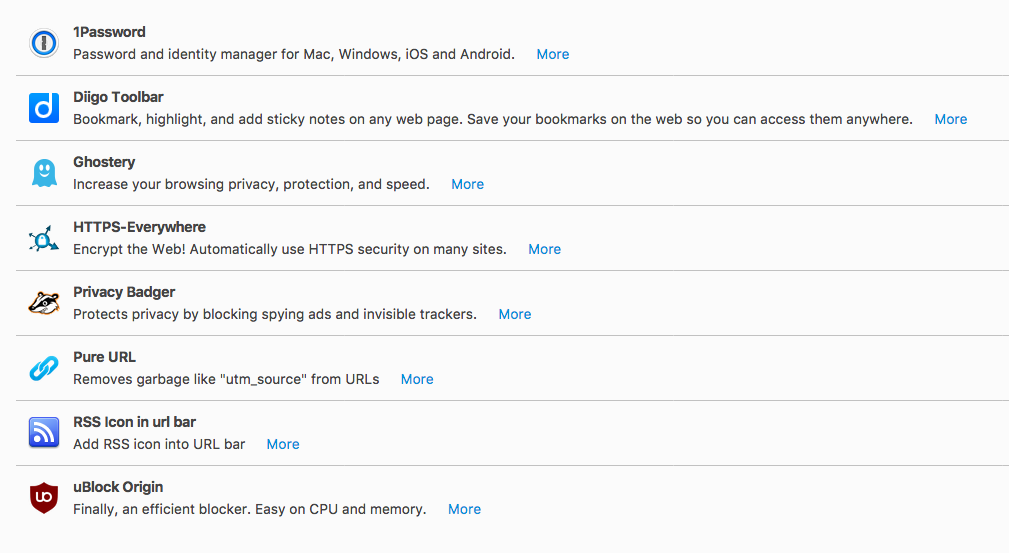As the internet becomes an essential part of lives — enabling us to access government services, connect with friends, and earn a living — there are frustratingly few ways to maintain privacy or security online. Companies that control a large part of the web traffic — Google, Facebook, Amazon — can pretty much do whatever they want with our data. And now American internet service provides can sell customer information to the highest bidder. Since most internet traffic flows through the USA, this affects the rest of the world as well.
I am not a programmer but I try to stay informed about information technology through my professional social networks. Here are a few things I do to thwart government and corporate interests that may not have my privacy foremost in mind.
I use a password manager, Canadian-made 1Password. It creates a unique, long, password for every site I use. Each one is different so that when the site inevitably gets hacked, I only have to change one password, and the hackers do not get access to my other sites.
I use three different browsers. One is used to access Google services and LinkedIn only. I know that these sites track me so I don’t do anything else on this browser. I have another browser kept clean and seldom used, as a backup or if I need to access something that is blocked by my main browser, Firefox. On Firefox I have installed HTTPS Everywhere, Ghostery, Privacy Badger, CanvasBlocker, and uBlock Origin. I have also uninstalled Adobe Flash, a known point of vulnerability on any computer. I realize that this is probably not enough but it gives me some defence against prying eyes.
I used to have GMail as my main email service. I recently switched my domain forwarding to ForwardMX (located in Switzerland & France) and my email service to Unseen (located in Iceland). I’m diversifying.
For search engines, I avoid the ubiquitous Google and its tracking of my activity. Instead, I use Startpage and DuckDuckGo which provide some level of online anonymity.
I know there is more I can, and should, do. With few trusted third parties to look after the typical citizen on the internet, it is up to all of us to help each other out. One good source of trusted advice, though US-centric, is the Electronic Frontier Foundation.



Update: I am now using Fastmail for email and also use encrypt.me as a VPN when away from home.